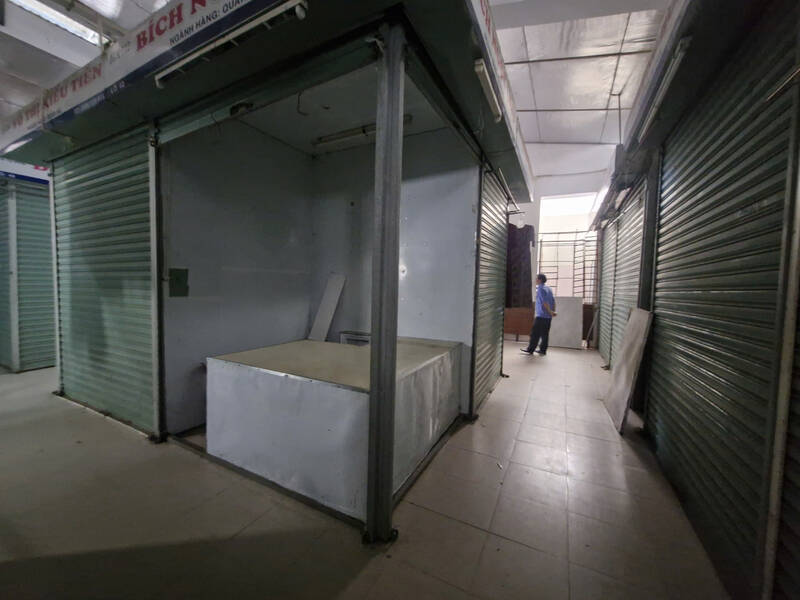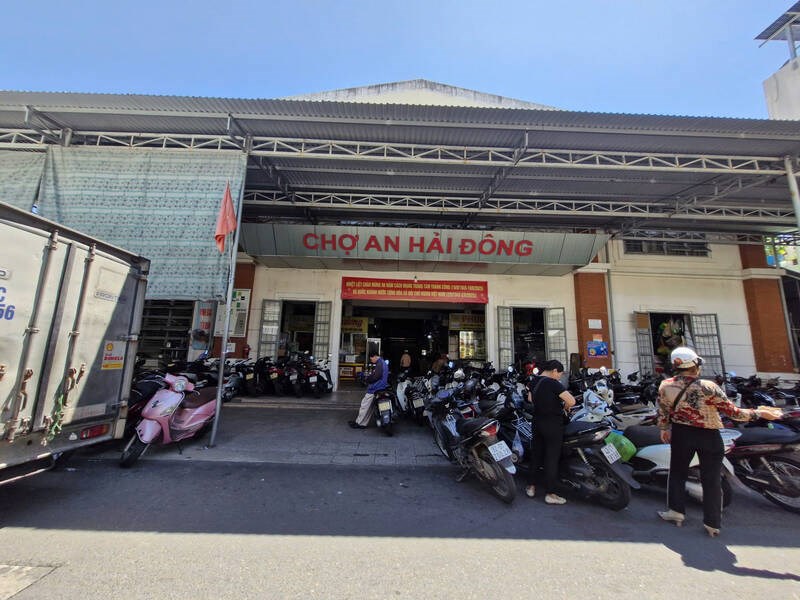Traditional markets are at a disadvantage
No longer having the habit of going to traditional markets regularly, Ms. Nguyen Thi Hien (65 years old, living in Da Nang) shared that she often goes to buy food and provisions at stores along the road and temporary markets near her home for convenience.
Accordingly, only during the holidays, Ms. Hien goes to An Hai Dong market to shop and choose goods. According to Ms. Hien, shops outside the street are currently selling well, while the alley leading to the market is increasingly narrow, making buyers like her feel uncomfortable.
"The shops and market for toad are very popular, but the stalls in An Hai Dong market are deserted. Especially on the 2nd floor, a series of stalls are empty, and we, the people, have not walked up there almost a year" - Ms. Hien described.

Similarly, Ms. Tran Thi Nga (30 years old) - a resident living around Phuoc My market - also admitted that her consumption habits have changed significantly after the COVID-19 pandemic.
Ms. Nga said that in the past few years, her family rarely visited the traditional market. She often shops in stores and supermarkets for fresh food near her home, sometimes buying at temporary markets, ordering online to deliver to her home because there are discount codes and free shipping, so it is cheaper to go to traditional markets.
Only sellers cannot find buyers, Ms. Tran Thi Ly (born in 1961, trading at An Hai Dong market) has been helpless for the past few years, seeing the pile of inventory increase, many traders like her just hope to recover capital soon, earning a few coins to spend over the day.
Supporting small traders to catch up with digital transformation
Previously, in early August 2025 in Da Nang City, the Department of E-commerce and Digital Economy (Ministry of Industry and Trade) coordinated with the Department of Industry and Trade of Da Nang to organize a digital transformation training program for market management boards, traders, and sellers in the city.
Ms. Le Hoang Oanh - Director of the Department of E-commerce and Digital Economy, Ministry of Industry and Trade - emphasized that e-commerce is no longer a trend but has become an indispensable part of the modern economy, opening up unprecedented opportunities for businesses to access larger markets, optimize costs, and improve customer experience.
However, the rapid and strong development of e-commerce also poses some challenges for traders in traditional markets and streets.

According to Ms. Oanh, previously, traditional markets were the main places for buying and selling, but after the COVID-19 pandemic, consumers gradually tended to switch to online shopping through e-commerce platforms.
E-commerce platforms not only provide preferential prices but also organize activities such as livestream sales, attracting consumers. Online market services in densely populated areas have further accelerated people from traditional markets.
This practice shows that it is necessary to have timely support programs and solutions from the State for traders and traditional market management boards to keep up with the digital transformation, contributing to the sustainable development of e-commerce.










